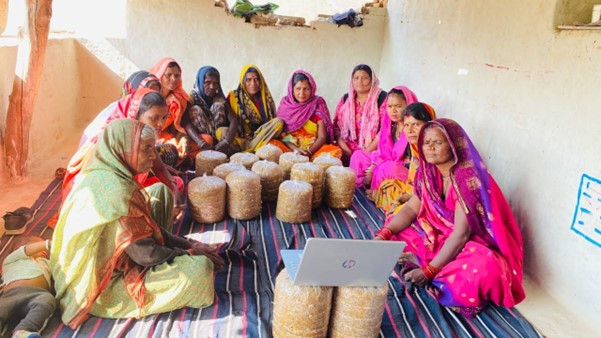A platform for miners by miners, promoting miners’ voice to build knowledge and empowerment in Artisanal and Small-Scale Mining.
An estimated 42 million people are employed in artisanal and small-scale mining (ASM) across the globe. For many of these people, ASM provides the main source of household income, which often exceeds earnings from agriculture, retail, and other informal sector jobs.
The Delve Exchange initiative is a collaboration between The University of Queensland and over 30 global ASM associations such as the Association of Women In Mining, Africa. Founded in 2021 it has grown to over 1500 members in 71 countries in 6 geographical regions Africa (Swahili, French and English), Latin America , South Central Asia and the Asia-Pacific. Our partners have first-hand experience as miners, ASM Association representatives and/or providers of ASM technical assistance and support. Partners act as ‘Regional Knowledge Exchange Coordinators’ and ambassadors who work across their regions to identify associations and cooperatives of artisanal and small-scale miners to build a network and help facilitate the sharing of best practices.
Background
Why are ASM networks and associations so important?
ASM national networks and associations play a crucial role supporting ASM across the globe. They advocate on behalf of their members on policy issues, promote improved mining practices in areas such as the environment, health and safety, provide access to knowledge and resources (including finance), and may even provide a social safety net when a crisis occurs.
Data collected by the World Bank and partners in 2020 has highlighted the crucial role ASM associations played during the height of the COVID-19 pandemic in providing emergency support to miners in COVID-impacted areas. Examples of interventions include supply of health equipment and sanitation stations, health information campaigns, measures to support people returning to their rural homes, and campaigns to promote best practices in artisanal and small-scale mining.
Funding body
This project is funded by The World Bank under its Extractives Global Programmatic Support (EGPS) Trust Fund.
Aim
The Delve Exchange’s approach is distinguished by its deliberate and purposive miner-empowerment bias. It champions, and gives voice to, miners to tell their own story in their own words. This reflects the call for miner voice in the Mosi-Oa-Tunya Declaration, spearheaded by members of the Delve Exchange team.
With basic instruction, a story telling framework and mentoring, miners record events at their sites in the form of practice stories (describing a mining related practice), challenge stories (elaborating a problem/challenge) and exchange stories (describing how they have learned from others across the network). These are posted in WhatsApp groups as text, voice messages or video; these groups operate in English, French, Spanish and Swahili with accommodation for local languages.

Delve Exchange Phase II
In February 2024 , the World Bank funded a second phase of Delve Exchange. In Phase 2, members are working to grow membership particularly in disadvantaged, marginalised groups of miners. We are also working with miners to build the ASM Academy using knowledge and stories from miners to create learning materials for miners by miners. Miners and trainers will use these materials to create positive change at their mine sites. The ASM Academy reflects the knowledge and practical experience of miners, fostering from the ground up ,the building of new knowledge and capacity in institutions across the sector through knowledge exchange and partnerships between the ASM sector and four regional university partners and training organisations. The ASM Academy references certification initiatives such as the Code of Risk mitigation for Artisanal and small-scale miners engaging in Formal Trade (CRAFT), with the possibility of extending existing codes to cover the commodity mined or quarried on their site (for example sand).
These opportunities have created a stimulus for sharing and soliciting advice from other miners and have built miners’ confidence to lead discussions in over 150 monthly and global forums. In this way, the Delve Exchange has enabled the global voice and visibility of ASM and the quarry sector associations as exemplified by the Delve Exchange leadership of a plenary session From the Mines up: building coalitions for change at the EGPS conference in Nairobi in December 2022.
ASM miners and quarry workers who have rarely had a place at the table and whose knowledge and experience is often ignored, are now able to present the miner’s voice in international events (for example, Delve Exchange members presented at the planetGold Global Forum 2024 , at the OECD Forum on Responsible Mineral Supply Chains in May 2024, and at the World Bank Conference on ASM post COVID-19 in December 2022).
Key researchers
Professor Daniel Franks
View Daniel Franks' research profile
Dr Lynda Lawson
View Lynda Lawson's research profile
Dr Paul Rogers
View Paul Rogers' research profile
Dr Fitsum Weldegiorgis
View Fitsum Weldegiorgis' research profile
Learning design team
Ms Rosemarie Tapia-Rivera
View Rosemarie Tapia-Rivera's profile
Ms Susan Sheng
View Susan Sheng's profile
Contact us
Get in touch to learn more about the Delve Exchange project.
Dr Lynda Lawson
Senior Research Fellow, Global Centre for Minerals Security
The DELVE Exchange project sits within the Global Centre for Minerals Security (GCMS).
